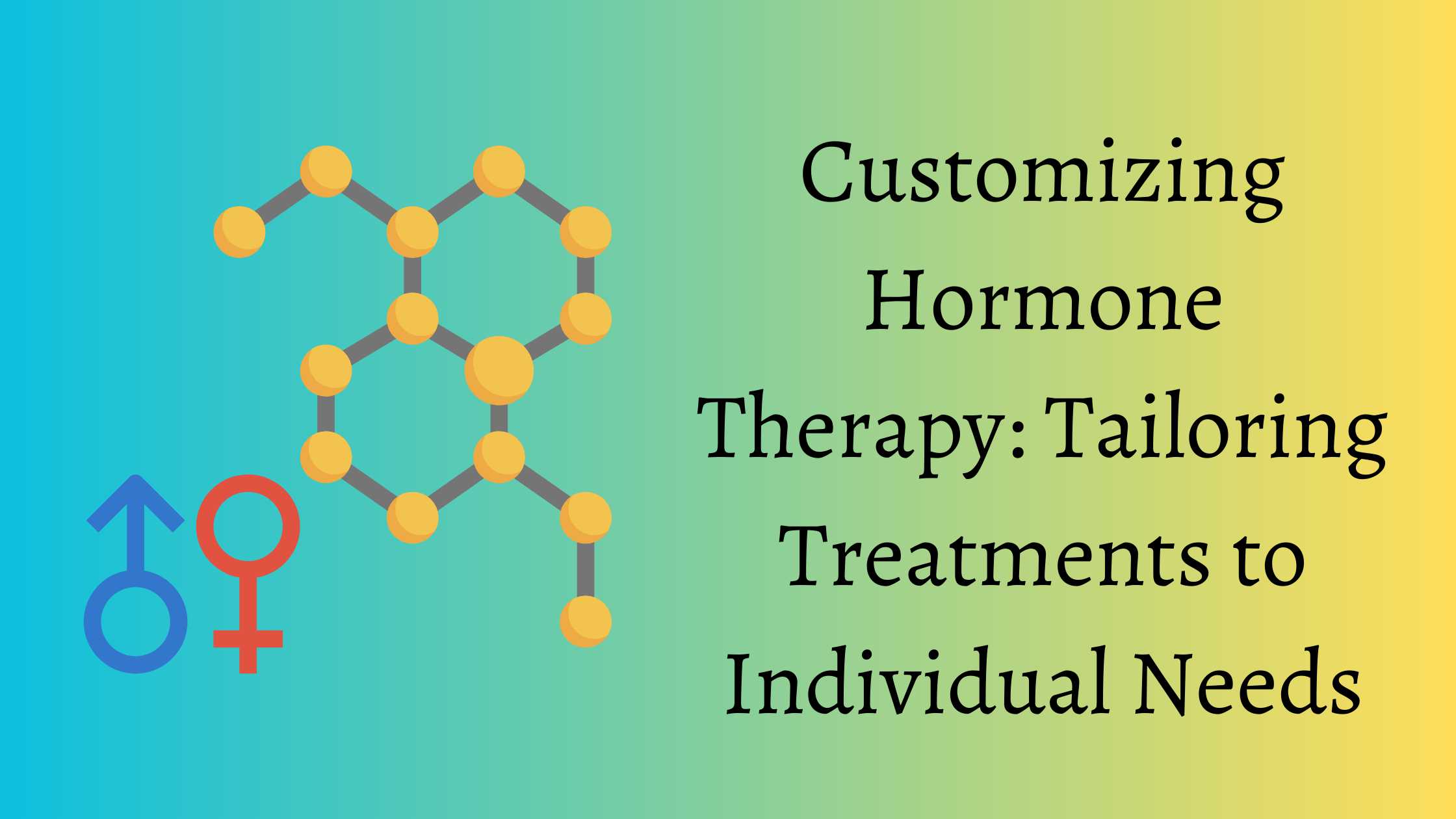
Customizing Hormone Therapy: Tailoring Treatments to Individual Needs
Hormone therapy is a medical treatment that helps individuals manage various hormonal imbalances caused by age, genetics, or other health conditions.
It is a therapeutic approach that involves the administration of hormones, either natural or synthetic, and can be personalized to fit the specific needs of each patient.
Customizing hormone therapy is an innovative approach that tailors treatments to an individual’s unique health profile, lifestyle, and preferences. It has become increasingly popular among healthcare providers and patients alike due to its effectiveness in addressing hormonal imbalances and improving overall quality of life.
In this blog post, we will discuss the importance of customizing hormone therapy and how it works. We will delve into different types of hormone therapy and what conditions they can treat, as well as the different methods of delivery, including pills, patches, injections, and creams. We will also cover the potential benefits and risks of hormone therapy and how to determine if it is the right choice for you.
Assessing hormone levels:
Assessing hormone levels is a crucial step in customizing hormone therapy to meet individual needs. Hormone levels can fluctuate due to a variety of factors, including age, stress, and other medical conditions. Therefore, it is essential to conduct a thorough evaluation of hormone levels before beginning any hormone therapy. Additionally, it is recommended to regularly monitor hormone levels throughout the course of treatment to ensure that the therapy remains effective and safe.
With the help of advanced testing technologies, healthcare providers can assess hormone levels with greater precision and accuracy, allowing them to tailor hormone therapy to meet the specific needs and goals of each patient.
By customizing Hormone Replacement Therapy on Maui, healthcare providers can ensure optimal patient outcomes while minimizing risks and reducing the incidence of adverse side effects.
Identifying patient needs:
Identifying patient needs is an essential component in customizing hormone therapy treatments to individual needs. Before developing a treatment plan, it is important to gather a thorough medical history, including current symptoms and past medical procedures.
Additionally, assessing the patient’s lifestyle factors, such as diet, exercise, and stress levels, can provide valuable insights into individualized treatment regimens.
By taking a comprehensive approach to patient care and considering the unique needs and goals of each patient, healthcare professionals can craft tailored hormone therapy treatments that are effective, safe, and sustainable over a long-term period.
This approach can lead to improved patient satisfaction and outcomes, while also minimizing side effects and risks. Ultimately, the process of customizing hormone therapy treatments to individual needs requires an in-depth understanding of each patient’s unique circumstances and health status.
Designing a personalized plan:
Designing a personalized plan for hormone therapy is crucial in ensuring that treatments are tailored to an individual’s specific needs. This approach is based on the understanding that no two individuals are alike, and each person has unique physiological and genetic differences that impact how their body responds to hormone therapy.
One of the key aspects of personalized hormone therapy is conducting a thorough evaluation of the patient’s health status, including their medical history, current symptoms, and hormone levels.
This information can then be used to determine the optimal dose, route of administration, and duration of treatment that is most likely to achieve the desired outcomes. Furthermore, personalized plans may also include lifestyle modifications, such as dietary changes and exercise programs, to support the effectiveness of hormone therapy.
By taking a personalized approach to hormone therapy, we can develop treatments that are tailored to individual needs and provide better outcomes for patients.
Implementing treatments:
Implementing treatments is an important component of successful hormone therapy customized to meet individual needs. A thorough evaluation of each patient, including medical history and current symptoms, is necessary to determine the most effective combination of hormone treatments.
It is imperative to utilize appropriate dosages of hormones, as excess or insufficient hormonal treatment can lead to adverse health effects. Furthermore, monitoring the progress of the patient as therapy is ongoing is crucial, as adjustments may need to be made to treatment plans to ensure optimal results.
When implementing treatments, healthcare professionals must also consider the patient’s lifestyle factors and preferences, such as route of administration and frequency of treatments, to ensure adherence to the therapy regimen.
Overall, implementing customized hormone therapy requires a thorough understanding of the patient’s individual needs and careful consideration of various treatment options to ensure the best possible results.
Monitoring progress and adjusting as needed:
Monitoring progress and adjusting treatment as needed is an integral part of customizing hormone therapy to meet individual needs. It is essential to regularly assess a patient’s response to therapy, both in terms of symptom relief and potential side effects.
To achieve optimal results, physicians should establish a monitoring schedule that takes into account the specific treatment plan and patient characteristics. The frequency of monitoring may vary depending on the type of therapy and individual response to treatment.
Regular follow-up appointments and laboratory testing may be necessary to evaluate hormone levels and overall health status. Based on the results of monitoring, healthcare providers can adjust treatment dosage and frequency to achieve optimal hormone levels and symptom control while minimizing side effects. Customizing hormone therapy through ongoing monitoring and adjustments can help patients achieve optimal health outcomes and overall quality of life.






